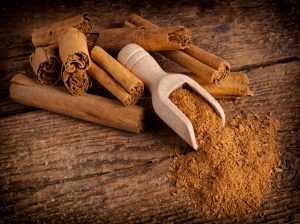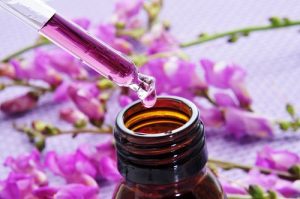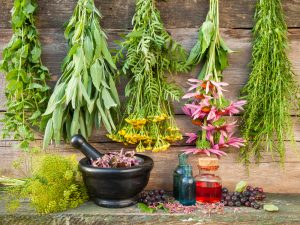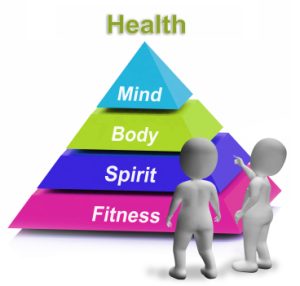By – James M. Katz, BA
Exploring the multifaceted role of Vitamin C in Holistic Healthcare, this article delves into its antiviral properties and how it influences the body’s fight against viral infections. From its mechanisms of action to its use in clinical settings, as well as a holistic nursing setting, Vitamin C’s impact on viruses is examined through scientific evidence and historical studies. The article also discusses optimal dosages, administration methods, and the broader implications of Vitamin C as a cost-effective and accessible option in public health strategies.
Key Takeaways
- High-dose Vitamin C has been shown to possess potent antiviral properties, capable of combating a variety of viruses and significantly improving patient outcomes in conditions like pneumonia and sepsis.
- Even low doses of Vitamin C can improve respiratory symptoms and reduce mortality, highlighting its importance for low-income populations with limited treatment options.
- Vitamin C’s role in enhancing the immune system is crucial, with effects such as stimulating interferon production and preventing inflammatory hyperactivation in immune cells.
- Intravenous and liposomal forms of Vitamin C delivery are recommended for serious infections, and the vitamin works synergistically with other treatments like nebulized hydrogen peroxide.
- Ongoing research continues to explore the broad-spectrum healing potential of Vitamin C, including its anti-cancer properties, effects on chronic inflammation, and benefits for skin and oral health.
The Antiviral Properties of Vitamin C
Mechanisms of Action Against Viruses
Vitamin C, also known as ascorbic acid, exhibits several antiviral mechanisms that can disrupt the life cycle of viruses. One key aspect of its antiviral action is the ability to degrade the genomes of RNA and DNA viruses, making their replication more susceptible to damage. This results in a reduced production of viral proteins, which is crucial for the virus to spread and infect new cells.
- Direct inhibition of viral replication enzymes.
- Degradation of single and double-stranded RNA and DNA viral genomes.
- Interference with viral assembly and release.
Vitamin C’s multifaceted antiviral effects are not limited to a single pathway, but rather involve a combination of direct and indirect actions that together contribute to its overall antiviral efficacy.
While the direct mechanisms are clear, Vitamin C also plays a role in modulating the host’s immune response, which indirectly contributes to its antiviral effects. The exact pathways and the clinical significance of these mechanisms continue to be an area of active research.
Clinical Evidence Supporting Antiviral Activity
Clinical studies have consistently highlighted the antiviral efficacy of Vitamin C, particularly when administered in high doses. The potency of Vitamin C in combating viral infections is well-documented, with various research indicating significant benefits in both oral and intravenous forms.
- Vitamin C has shown to inhibit the production of certain viral components, effectively reducing viral replication.
- High-dose Vitamin C therapy has been used to treat a range of viral infections, with numerous studies reporting positive outcomes.
- The strategic administration of Vitamin C, whether oral or intravenous, is crucial for maximizing its antiviral effects.
While the exact mechanisms are still being explored, the clinical evidence supports the role of Vitamin C as a valuable player in antiviral therapy.
Comparative Efficacy with Other Antiviral Agents
When evaluating the efficacy of Vitamin C against viruses, it’s crucial to compare its antiviral properties with those of established antiviral agents. Studies have shown that Vitamin C can exert a preventive and protective effect on cell viability against viral cytopathic effects, particularly when administered before infection. This suggests that Vitamin C may serve as a complementary approach alongside traditional antiviral medications.
Comparative studies have used control antivirals such as amantadine and oseltamivir to benchmark the performance of Vitamin C. The results indicate that while Vitamin C does not match the targeted antiviral activity of these pharmaceuticals, it still significantly decreases viral-induced cytopathic effects, hinting at its potential as an adjunct therapy.
The antiviral activity of Vitamin C although not as potent as specific antiviral drugs, offers additional cellular protection which could be beneficial in a holistic treatment regimen.
The table below summarizes the comparative efficacy of Vitamin C against other antiviral agents:
| Antiviral Agent | Mechanism of Action | Comparative Efficacy with Vitamin C |
| Amantadine | Inhibits viral replication | Less effective than Vitamin C in pre-infection treatment |
| Oseltamivir | Neuraminidase inhibitor | More targeted, but Vitamin C provides additional protection |
While Vitamin C may not replace antiviral drugs, its broad mechanism of action and safety profile make it a valuable addition to antiviral strategies, especially in cases where drug resistance or side effects are a concern.
Vitamin C Dosage and Administration for Viral Infections
Oral vs. Intravenous Delivery
The administration of Vitamin C can be significantly different in terms of efficacy and application when comparing oral and intravenous (IV) delivery methods. Oral administration is convenient and sufficient for daily supplementation, but may not achieve the high blood concentrations that can be reached with IV delivery. IV administration, on the other hand, allows for rapid absorption and higher doses, which can be critical in treating serious conditions like sepsis and viral infections.
- Oral delivery: Convenient, suitable for daily use, limited by absorption and bowel tolerance.
- IV delivery: Rapid absorption, higher achievable doses, used for acute and serious conditions.
While both methods have their place in holistic nursing, the choice between oral and IV Vitamin C administration should be guided by the condition being treated and the desired therapeutic outcome.
Clinical evidence suggests that for most individuals, frequent oral doses up to the bowel tolerance limit can serve as an effective antiviral therapy. However, in more severe cases, such as with life-threatening infections, IV Vitamin C has been shown to offer significant improvements in patient outcomes.
Optimal Dosing Strategies
Determining the optimal dosage of Vitamin C for antiviral, holistic healthcare purposes involves a delicate balance between efficacy and safety. The goal is to achieve plasma saturation without causing adverse effects, which can vary from person to person.
- For general immune support and prevention, a daily intake of Vitamin C is often recommended at around 200-500 mg.
- During times of illness, dosages may be increased to 1-2 grams per day, taken in divided doses to maintain higher plasma levels.
- In cases of severe viral infections, healthcare providers may administer intravenous Vitamin C at doses ranging from 10 to 20 grams per day, based on the patient’s condition and tolerance.
It’s crucial to consult with a healthcare provider for personalized dosing instructions, as individual needs can differ significantly. Self-administration of high doses without medical supervision is not recommended due to the potential for side effects.
While oral supplementation is suitable for most individuals, intravenous delivery may be considered for those with gastrointestinal issues or when a rapid increase in Vitamin C levels is required. Monitoring of Vitamin C levels and renal function is important when administering high doses, especially intravenously.
Safety and Side Effects of High-Dose Vitamin C
While high-dose vitamin C is heralded for its potential antiviral properties, its safety profile warrants careful consideration. At high doses, vitamin C can act as either a pro-oxidant or antioxidant depending on the cellular environment, which underscores its complex role in the body’s metabolic processes.
High-dose vitamin C therapy, typically defined as intravenous infusions of at least 5 grams per day, may induce inflammation. To mitigate this, some protocols suggest the addition of hydrocortisone. However, it’s important to note that cortisol levels are already elevated in conditions like sepsis, and vitamin C might help by reducing the oxidation of cortisol receptors.
The side effects of high-dose vitamin C are generally mild and can include gastrointestinal disturbances such as diarrhea, which is often a limiting factor for oral administration. Intravenous delivery, while bypassing these gastrointestinal issues, requires medical supervision and carries its own set of considerations. Below is a list of common side effects associated with high-dose vitamin C:
- Gastrointestinal discomfort
- Diarrhea
- Nausea
- Insomnia
- Headache
It is essential for individuals considering high-dose vitamin C therapy to consult with healthcare professionals to tailor the treatment to their specific health needs and to monitor for any adverse effects.
Vitamin C’s Role in Immune System Enhancement
Stimulating Interferon Production
Vitamin C plays a crucial role in the body’s antiviral defense by stimulating the production of interferon, proteins that are pivotal in the immune response to viruses. This stimulation not only enhances the body’s ability to fend off viral infections but also modulates the immune system to prevent overreaction.
Vitamin C’s influence on interferon production is a key aspect of its antiviral properties. It helps orchestrate a balanced immune response, ensuring that the body’s defense mechanisms act effectively without causing excessive inflammation.
The mechanisms through which Vitamin C affects interferon levels include:
- Modulating gene expression related to antiviral defenses.
- Decreasing the expression of susceptibility genes like MAVS and IRF3.
- Increasing the expression of NF-κB, which in turn induces type I interferons.

Holistic Nursing 101 – Boost your Immune System!
These actions contribute to a robust innate antiviral response, which is essential during the early stages of viral infection. Clinical studies have underscored the importance of Vitamin C in the immune system’s ability to produce interferon, particularly during the initial stages of influenza A virus infection.
Influence on Myeloid and Lymphoid Cells
Vitamin C plays a pivotal role in the functioning of immune cells, particularly myeloid and lymphoid cells. It enhances cellular immunity by increasing the number, activity, and aggressiveness of leukocytes, lymphocytes, NK cells, and macrophages. These cells are essential for the body’s defense against viral infections, and their efficacy is significantly influenced by the availability of vitamin C.
- Vitamin C accumulates in the lysosomes of phagocytic cells, boosting chemotaxis, chemokinesis, and phagocytosis.
- It favors the generation of reactive oxygen species such as H2O2 in the presence of oxygen, which are vital for the destruction of pathogens.
Vitamin C is not only crucial for the direct elimination of pathogens but also for the modulation of the immune response. It increases the production of anti-viral proteins like interferons while reducing the production of pro-inflammatory cytokines, thus balancing the immune response to prevent excessive inflammation.
Furthermore, vitamin C is involved in the production of antibodies, thereby enhancing humoral immunity. This dual action on both cellular and humoral immunity positions vitamin C as a key nutrient in maintaining a robust and responsive immune system.
Prevention of Inflammatory Hyperactivation
Vitamin C plays a crucial role in modulating the body’s inflammatory response, particularly during viral infections. High doses of vitamin C may prevent the excessive release of pro-inflammatory cytokines, commonly referred to as a ‘cytokine storm,’ which is a hallmark of severe respiratory illnesses like COVID-19. By acting as both a pro-oxidant and antioxidant, vitamin C can influence the expression of inflammatory mediators and improve lung cell functions.
Vitamin C’s ability to decrease the generation of pro-inflammatory cytokines such as TNF-α and IL-6 is essential in preventing inflammatory hyperactivation, which can lead to acute lung injury or ARDS.
The following points summarize the anti-inflammatory actions of Vitamin C:
- Attenuates expression of pro-inflammatory mediators.
- Improves alveolar fluid clearance and epithelial lung cell functions.
- Modulates systemic and leukocyte-derived cytokines.
- Protects host cells against oxidants released by phagocytes.
These actions underscore the potential of high-dose vitamin C supplementation not only in treating but also in preventing respiratory and systemic infections.
Historical and Recent Clinical Studies on Vitamin C
Pioneering Work by Dr. Klenner
The early work of Dr. Frederick R. Klenner set a precedent in the study of vitamin C’s effects on viral infections. He was one of the first to suggest high doses of vitamin C could combat a variety of viral diseases. His extensive clinical trials in the mid-20th century provided the foundation for understanding the potential of vitamin C in antiviral therapy.
Dr. Klenner’s approach was characterized by his aggressive dosing regimens, which often exceeded the established norms of his time. Below is a summary of the key aspects of his methodology:
- Utilization of both oral and intravenous vitamin C
- Administration of doses up to 300 grams per day for severe cases
- Frequent dosing intervals, sometimes hourly
- Treatment duration extended until clinical recovery was evident
While his work was initially met with skepticism, it has inspired decades of research into the therapeutic use of vitamin C. The legacy of Dr. Klenner’s pioneering spirit continues to influence current studies and practices.
Recent Randomized Controlled Trials
Recent randomized controlled trials have shed new light on the antiviral efficacy of vitamin C. Studies have demonstrated a range of outcomes, from significant improvements in patient conditions to more modest effects. The trials often vary in their design, dosage, and the specific viruses targeted, making direct comparisons challenging.
One such study, approved by the ethics committee of the Pomeranian Medical University, explored the impact of vitamin C supplementation on rats treated with letrozole, an aromatase inhibitor. The results indicated that vitamin C might mitigate some of the adverse effects associated with letrozole treatment.
The implications of these findings suggest that vitamin C could play a beneficial role in managing viral infections, although further research is necessary to fully understand its potential.
A summary of key trial groups is presented below:
- CTRL: Control group
- CTRL+C: Control group supplemented with vitamin C
- LET: Letrozole-treated group
- LET+C: Letrozole-treated and vitamin C-supplemented group
These trials are crucial in establishing a scientific basis for vitamin C’s therapeutic use and inform optimal dosing strategies.
Meta-Analyses of Vitamin C’s Effectiveness
Meta-analyses of clinical trials have been instrumental in synthesizing data to assess the overall effectiveness of Vitamin C in treating viral infections. These comprehensive reviews suggest that Vitamin C can reduce the duration and severity of colds, especially when taken as a regular supplement.
A notable meta-analysis examined the impact of Vitamin C on the common cold:
While the results indicate a modest effect, the consistency across multiple studies reinforces the potential role of Vitamin C as a supportive therapy in viral infections.
The role of Vitamin C extends beyond a simple immune boost; it appears to modulate the immune response, potentially reducing the risk of complications associated with the overactivation of the immune system.
It is important to note that the benefits of Vitamin C are more pronounced in specific populations, such as those under physical stress or those with lower baseline levels of Vitamin C. This highlights the need for personalized approaches in Vitamin C supplementation and therapy.

Vitamin C in the Context of Respiratory Illnesses
Impact on Pneumonia and Lung Function
Vitamin C has been observed to play a significant role in the management of pneumonia and lung function, particularly in the context of severe respiratory infections like COVID-19. The administration of high-dose intravenous Vitamin C has been linked to rapid clearance of acute lung infections, as evidenced by improved chest X-ray results. This effect is thought to be due to Vitamin C’s ability to enhance the apoptosis of neutrophils and their subsequent clearance from the lungs.
Vitamin C’s antioxidant properties may mitigate the oxidative stress and inflammation associated with acute respiratory distress syndrome (ARDS), which is a common complication in severe cases of pneumonia.
The dual role of Vitamin C as both a pro-oxidant at pharmacological doses and an antioxidant at physiological doses is crucial for its therapeutic effects. While it supports the immune cells’ function in combating infections, it simultaneously protects lung epithelial cells by promoting mitochondrial oxidative phosphorylation for energy production. However, the osmotic effect of high-dose Vitamin C treatment remains a concern that warrants further investigation.
Use in Coronavirus and Sepsis Treatment
The therapeutic application of Vitamin C has gained attention in the treatment of severe respiratory illnesses, including coronavirus and sepsis. Vitamin C’s role in reducing mortality and hospitalization time for critically ill patients is supported by its ability to enhance the function of neutrophils and macrophages, which are crucial in fighting infections and preventing lung damage.
In the context of sepsis, a condition marked by systemic inflammation and oxidative stress, Vitamin C levels are often severely depleted. Replenishing these levels is vital for the proper functioning of immune cells and the protection of lung epithelial cells.
For optimal results, healthcare professionals are increasingly considering the use of intravenous or liposomal forms of Vitamin C. This approach ensures higher bioavailability and efficacy in combating the severe effects of these conditions. Additionally, the combination of Vitamin C with other treatments, such as nebulized hydrogen peroxide, has shown promise in acute viral infections and respiratory issues.
| Treatment Method | Potential Benefits |
| Intravenous Vitamin C | Higher bioavailability, better outcomes in critical care |
| Liposomal Vitamin C | Enhanced cellular uptake, suitable for outpatient treatment |
| Nebulized Hydrogen Peroxide | Adjunctive therapy for acute respiratory infections |
Synergistic Effects with Other Therapies
Vitamin C is not only beneficial on its own but also exhibits synergistic effects when combined with other therapies. This synergy can enhance the overall efficacy of treatment protocols, particularly in the context of respiratory illnesses.
- Antioxidants: Vitamin C works in concert with other antioxidants, such as N-acetylcysteine, to reduce oxidative stress and inflammation.
- Immune Modulators: It can enhance the effects of substances that modulate the immune system, potentially leading to improved outcomes.
- Conventional Medications: When used alongside standard treatments, Vitamin C may improve patient recovery times and reduce the severity of symptoms.
The combination of Vitamin C with other therapeutic agents could lead to a more comprehensive approach to treating viral infections, offering a multi-faceted defense against pathogens.
While the potential for synergistic effects is promising, it is crucial to approach combination therapies with careful consideration of dosages and interactions to ensure patient safety and optimize health outcomes.
Vitamin C as a Preventative Measure
Reducing the Incidence of Colds and Respiratory Viruses
The common cold and other respiratory viruses pose a significant challenge, especially in environments like schools and daycares where exposure to pathogens is frequent. Vitamin C has been recognized for its role in bolstering the immune system, potentially reducing the severity and incidence of these infections.
- Vitamin C supports various immune functions, enhancing the body’s ability to fend off infections.
- Adequate intake of Vitamin C before, during, and after illness may lessen the severity of symptoms.
- Intravenous or liposomal Vitamin C delivery is suggested for more severe respiratory conditions.
While no single intervention guarantees immunity, a combination of dietary considerations and supplementation can form a robust defense against common respiratory viruses.
Children, in particular, benefit from immune support due to their incomplete immune development and high exposure to pathogens. A study indicated that the rate of respiratory infections in children spikes initially upon starting daycare but tends to decrease after several months, suggesting an adaptive immune response that could be further supported by Vitamin C supplementation.
Vitamin C Supplementation for At-Risk Populations
Vitamin C supplementation holds particular significance for at-risk populations, offering a cost-effective and accessible means to bolster the immune system. For the elderly and those with limited healthcare access, even low doses of vitamin C can be life-saving. A study by Hunt et al. (1994) demonstrated that a daily intake of just 200 mg of vitamin C significantly improved respiratory symptoms and reduced mortality by 80% among severely ill, hospitalized elderly patients.
The versatility of vitamin C as both a pro-oxidant and antioxidant, depending on the cellular environment, underscores its potential as a broad-spectrum antiviral agent.
For most individuals, frequent oral doses of vitamin C, up to the bowel tolerance limit, can serve as an effective antiviral therapy. In more severe cases, intravenous administration may be indicated to achieve higher concentrations in the bloodstream. The following table summarizes the benefits of vitamin C supplementation for at-risk groups:
| Population | Benefit | Dosage | Administration Method |
| Elderly | Improved respiratory symptoms, reduced mortality | 200 mg/day | Oral |
| General | Antiviral therapy | Up to bowel tolerance limit | Oral |
| Severe cases | Higher blood concentration | Individualized | Intravenous |
It is essential to tailor vitamin C therapy to the specific needs and conditions of at-risk populations, ensuring that this simple yet powerful nutrient can continue to provide its wide-ranging health benefits.
Integrating Vitamin C into Daily Health Regimens
Incorporating Vitamin C into daily holistic healthcare routines can be a simple yet effective strategy for enhancing overall well-being. Regular intake of Vitamin C is crucial for maintaining a robust immune system and can be achieved through diet, supplements, or a combination of both.
To ensure a consistent supply of this essential nutrient, consider the following steps:
- Identify Vitamin C-rich foods and include them in your daily meals.
- Evaluate your dietary intake and supplement if necessary to meet the recommended daily allowance.
- Monitor your health and adjust Vitamin C intake during times of illness or stress.
While Vitamin C cannot prevent all illnesses, its role in supporting immune function and reducing the duration of colds is well-documented. A balanced approach to Vitamin C consumption can contribute to better health outcomes.
For those seeking to optimize their Vitamin C levels, a structured regimen may include:
| Time of Day | Vitamin C Source | Amount |
| Morning | Dietary Intake | 90mg |
| Afternoon | Supplement | 500mg |
| Evening | Dietary Intake | 90mg |
Note: The above table is an example and individual requirements may vary.
The Broad-Spectrum Healing Potential of Vitamin C
Anti-Cancer Properties
The exploration of Vitamin C’s Holistic Nursing, anti-cancer properties has been a significant area of interest within the realm of holistic healthcare. Vitamin C has been identified as a potent agent that can selectively target and kill cancer cells, particularly those with certain genetic mutations such as KRAS and BRAF. This specificity offers a promising avenue for cancer therapy, potentially leading to treatments with fewer side effects compared to traditional chemotherapy.
Holistic Nursing professionals are increasingly recognizing the role of Vitamin C in cancer care, not only for its direct anti-cancer effects but also for its ability to bolster the immune system during such a critical time.
The mechanisms by which Vitamin C exerts its anti-cancer effects are multifaceted, including the inhibition of cancer cell proliferation and migration, as well as the enhancement of the body’s antioxidant capacity. Studies have shown that high doses of Vitamin C can induce oxidative stress in cancer cells, leading to their death, while simultaneously protecting healthy cells.
- Inhibition of Cancer Cell Proliferation: Vitamin C has been shown to inhibit the growth of various cancer cell lines.
- Antioxidant Capacity: High-dose Vitamin C can increase the body’s antioxidant capacity, which is particularly beneficial for cancer patients.
- Selective Cytotoxicity: Vitamin C can selectively kill cancer cells with specific genetic mutations, sparing healthy cells.
The potential of Vitamin C in cancer treatment is still being unraveled, and holistic nursing approaches continue to integrate this nutrient into comprehensive care plans, aiming to improve patient outcomes and quality of life.
Effects on Chronic Inflammation Diseases
In the realm of Holistic Healthcare, Vitamin C is recognized for its potential to modulate chronic inflammation, a common thread in many diseases. Chronic inflammation is implicated in a range of conditions, from autoimmune disorders to more frequent and severe infections. Vitamin C’s role in managing inflammation is multifaceted, influencing various aspects of the immune response.
Vitamin C contributes to immune defense by supporting various cellular functions of both the innate and adaptive immune systems. It enhances the skin’s barrier function against pathogens and promotes oxidant scavenging activity, which is crucial in inflammation.
- Vitamin C and Immune Function: Key Points
- Supports epithelial barrier function against pathogens
- Enhances the oxidant scavenging activity of the skin
- Reduces necessary inflammatory responses
- Aids in the regeneration of other antioxidants within the body
For those pursuing Holistic Healthcare Certification, understanding the intricate relationship between Vitamin C and immune health is essential. The nutrient’s ability to reduce inflammation may also slow the progression of age-related diseases and improve overall well-being.
Benefits for Skin and Oral Health
Vitamin C is renowned for its beneficial effects on skin and oral health. As an essential nutrient, it plays a pivotal role in the synthesis of collagen, a protein that is fundamental to maintaining the integrity and elasticity of the skin. Adequate vitamin C intake can help reduce the appearance of wrinkles, promote wound healing, and protect against UV-induced photodamage.
In the realm of oral health, vitamin C’s antioxidant properties aid in preventing and treating gingivitis, a common form of gum disease. It also contributes to the maintenance of healthy gums and the prevention of periodontal disease.
The consistent inclusion of vitamin C in one’s diet or through supplementation can lead to marked improvements in skin texture and oral health, underscoring its importance in daily health regimens.
Here is a summary of vitamin C’s benefits for skin and oral health:
- Promotes collagen synthesis for healthier skin
- Reduces the appearance of wrinkles
- Enhances wound healing and UV protection
- Prevents and treats gingivitis
- Contributes to the maintenance of healthy gums
- Prevents periodontal disease
Vitamin C’s Economic and Accessibility Advantages
Affordability and Global Health Implications
The affordability of Vitamin C stands as a beacon of hope for global health initiatives, particularly in resource-limited settings. Vitamin C’s low cost and wide availability make it an accessible option for bolstering public health defenses against viral diseases.
While not a panacea, the economic advantages of Vitamin C therapy can be leveraged to reduce the burden of viral infections in populations where healthcare resources are scarce.
In many parts of the world, the cost of medical treatments can be prohibitive, but Vitamin C remains an exception. Its inclusion in public health strategies can offer a cost-effective means to improve overall health outcomes. The table below illustrates the comparative costs of Vitamin C against other common antiviral agents:
This cost disparity highlights the potential for Vitamin C to play a significant role in the management and prevention of viral illnesses, especially in low-income regions.
Accessibility for Low-Income Populations
Vitamin C’s affordability and ease of production make it a particularly accessible option for low-income populations. Its low cost enables widespread distribution and integration into public health initiatives, especially in regions where more expensive treatments may not be feasible.
- Vitamin C is available in various forms, including tablets, capsules, and powders.
- It can be found in many fruits and vegetables, making dietary sources a viable option.
- Government subsidies and programs can further reduce the cost and improve accessibility.
Ensuring that Vitamin C is accessible to low-income populations is not just a matter of health equity; it is a cost-effective strategy that can have a profound impact on the overall burden of viral diseases.
The economic benefits of Vitamin C supplementation in preventing and managing viral infections could be significant, particularly for healthcare systems in low-income areas. By reducing the incidence of viral infections, Vitamin C can help to decrease healthcare costs and improve the quality of life for individuals in these communities.
The Role of Vitamin C in Public Health Strategies
Vitamin C’s accessibility and affordability position it as a cornerstone in public health strategies, especially in low-income populations. Its ability to improve respiratory symptoms and reduce mortality rates, even at low doses, makes it a valuable tool in managing viral infections and enhancing overall health.
Vitamin C’s role extends beyond individual health benefits, serving as a public health ally in the fight against viral diseases.
The following points highlight the strategic use of Vitamin C in public health:
- Ensuring adequate Vitamin C intake can be a cost-effective method to bolster the immune defenses of a community.
- Public health campaigns can promote Vitamin C supplementation to prevent and mitigate the impact of respiratory illnesses.
- Vitamin C’s multifunctional properties allow it to act as both a pro-oxidant and antioxidant, adapting to different cellular needs.
Incorporating Vitamin C into public health initiatives can lead to significant improvements in community health outcomes, particularly in under-resourced areas.
Debunking Myths: The Realities of Vitamin C Therapy
Addressing Common Misconceptions
In the realm of healthcare, Vitamin C often falls victim to a myriad of misconceptions. One of the most prevalent myths is that high doses of Vitamin C can prevent any viral infection, a claim that lacks robust scientific backing. While Vitamin C does play a role in supporting the immune system, its effects are nuanced and specific to certain conditions and dosages.
- Vitamin C is not a cure-all for viruses.
- It cannot replace vaccines or other preventative measures.
- High doses are not universally beneficial and can have side effects.
It’s essential to approach Vitamin C therapy with a balanced understanding of its capabilities and limitations.
Another common fallacy is the belief that Vitamin C’s benefits are instantaneous. In reality, the benefits of Vitamin C, particularly in the context of viral infections, accrue over time and with consistent intake. Misinformation can lead to overreliance on Vitamin C at the expense of other critical health interventions.
Evidence-Based Discussion on Vitamin C’s Limits
While vitamin C is celebrated for its immune-boosting properties, it is crucial to acknowledge its limitations in clinical settings. High doses of vitamin C, despite their popularity, are not a panacea for all viral infections. The efficacy of vitamin C as an antiviral agent varies depending on the virus type, the stage of infection, and individual patient factors.
It is important to note that the therapeutic window for vitamin C is not infinite; there is a ceiling to its beneficial effects, beyond which no additional immune support is provided.
Moreover, the assumption that vitamin C can function as a stand-in for vaccination against influenza strains is not supported by robust clinical evidence. The following list outlines key points to consider when evaluating the role of vitamin C in antiviral therapy:
- Vitamin C’s antiviral mechanisms are not universally effective against all viruses.
- The optimal dosing for antiviral effects is not well-established and may vary.
- High-dose vitamin C therapy can lead to side effects such as gastrointestinal discomfort.
- Vitamin C should complement, not replace, conventional antiviral treatments.
Understanding these constraints is essential for healthcare providers and patients alike to make informed decisions about the use of vitamin C in the context of viral infections.
The Importance of Scientific Literacy in Public Health
In the realm of public health, scientific literacy is a cornerstone that enables individuals to make informed decisions about their health and well-being. It is crucial for interpreting the efficacy and safety of treatments, such as Vitamin C therapy, and for understanding the nuances of clinical research.
Scientific literacy empowers the public to discern between evidence-based practices and unfounded claims, fostering a community that values and utilizes robust scientific data.
A scientifically literate society is better equipped to engage in meaningful discussions about health policies and interventions. This includes the ability to critically evaluate the following:
- The validity of health-related information presented in the media.
- The significance of peer-reviewed research findings.
- The relevance of clinical guidelines to personal health circumstances.
By enhancing scientific literacy, we pave the way for a more knowledgeable and proactive public, capable of contributing to the advancement of public health initiatives and personal health choices.
Future Directions in Vitamin C Research
Emerging Studies on Vitamin C and Viral Diseases
Recent research continues to explore the antiviral mechanisms of Vitamin C, revealing its potential as a versatile agent in the fight against viral infections. Large doses of Vitamin C, administered orally or intravenously, have shown promising results in clinical settings.

- Antiviral Mechanisms of Vitamin C: A Short Communication Consensus Report
- Published: September 15, 2020
- Authors: Michael J Gonzalez et al.
- Key Findings: Vitamin C exhibits potent antiviral activity, particularly in high doses.
The consensus among emerging studies is that Vitamin C’s role in the production of interferon, as well as its direct antiviral effects, could be significant in managing viral diseases.
Further investigations are warranted to fully understand the optimal dosing strategies and the comparative efficacy of Vitamin C against a range of viral pathogens. The table below summarizes recent studies and their contributions to the field:
| Study Title | Year | Key Contribution |
| Antiviral Mechanisms of Vitamin C | 2020 | Explored Vitamin C’s antiviral properties |
| The effect of ascorbic acid on production of human interferon | 1976 | Studied Vitamin C’s influence on interferon production |
These studies underscore the importance of Vitamin C in both therapeutic and preventative applications against viral infections.
Innovations in Vitamin C Delivery Methods
The landscape of vitamin C administration is witnessing significant advancements, with innovative delivery methods enhancing the vitamin’s bioavailability and therapeutic impact. Intravenous (IV) delivery, for instance, allows for rapid absorption and higher plasma concentrations, beneficial in acute settings. Conversely, oral supplements, the most common form, offer convenience but vary in absorption efficiency.
Recent developments have spotlighted liposomal vitamin C, a form encapsulated within liposomes that ensures almost complete absorption in the gut. This method promises to bridge the gap between IV and oral administration, offering high bioavailability without the need for invasive procedures.
The versatility of vitamin C as a metabolic modulator is further exemplified by its ability to act as a pro-oxidant or antioxidant, depending on the cellular environment and dosage.
As research progresses, the potential for new delivery systems such as nano-formulations and transdermal patches is being explored, which could revolutionize how we utilize vitamin C therapeutically. These innovations aim to maximize efficacy while minimizing side effects, making vitamin C therapy more accessible and tailored to individual needs.
Potential for New Therapeutic Applications
The exploration of Vitamin C’s therapeutic potential is branching into the realm of nanotechnology, where its integration with nanoparticles (NPs) is being investigated for enhanced antiviral effects. The synergy between Vitamin C and NPs could revolutionize antiviral treatments, offering a novel approach to combat resistant viral strains.
The convergence of Vitamin C and nanotechnology not only promises to amplify its antiviral capabilities but also opens the door to multifaceted applications in healthcare.
While the antiviral properties of NPs have been recognized, the combination with Vitamin C is relatively new and requires further research to determine optimal formulations and mechanisms of action. This innovative direction could lead to the development of more effective antiviral agents, potentially addressing the limitations of current therapies.
- Exploration of Vitamin C with nanotechnology for antiviral applications
- Research into optimal NP formulations for synergy with Vitamin C
- Potential development of novel antiviral therapies
The potential for new therapeutic applications of Vitamin C is vast, with ongoing studies poised to uncover groundbreaking methods to enhance its efficacy and broaden its use in the fight against viral diseases.
As we continue to explore the vast potential of Vitamin C in health and wellness, we invite you to join us on this exciting journey. Visit our website to access a wealth of resources, including our comprehensive Continuing Education program for Registered Nurses seeking Certification in Holistic & Integrative Health Care Practice. Stay at the forefront of Vitamin C research and take the next step in your professional development with our expertly designed courses and certifications. Don’t miss out on the opportunity to enhance your knowledge and skills—click the link to learn more and register for a course today!
Conclusion
The evidence presented underscores the significant antiviral properties of Vitamin C, particularly when administered in high doses. Clinical studies have consistently shown that Vitamin C can improve respiratory symptoms, reduce mortality rates in severe cases, and may even function as a preventative measure against various viral infections. Its role in enhancing immune responses and potentially acting as a functional immunization against influenza strains highlights its importance in holistic healthcare strategies. Moreover, Vitamin C’s accessibility and cost-effectiveness make it a vital resource for populations with limited healthcare options. As we continue to face challenges from viral pathogens, including the SARS-CoV-2 virus, the incorporation of Vitamin C into treatment protocols offers a promising avenue for improving patient outcomes and preventing the spread of infections.
Frequently Asked Questions
Can vitamin C combat all types of viruses?
Vitamin C has demonstrated the capability to combat various types of viruses, especially when administered in high doses. Even at lower supplemental amounts, it has shown to be beneficial, particularly for individuals with limited treatment options.
What clinical evidence supports the antiviral activity of vitamin C?
Clinical evidence for vitamin C’s antiviral activity includes randomized studies where high doses have led to improvements in respiratory symptoms and reduced mortality in severely ill patients.
How does high-dose vitamin C compare to other antiviral agents?
Some physicians rank high doses of vitamin C as comparable to a functional immunization against various influenza strains, indicating its potent antiviral properties.
What are the benefits of intravenous vitamin C for viral infections?
Intravenous vitamin C can be a powerful stand-alone therapeutic agent for eradicating viral infections, with evidence suggesting it can prevent and treat respiratory and systemic infections effectively.
Can vitamin C prevent lung damage during infections?
Vitamin C is crucial for fighting infections and preventing lung damage. Doctors may consider intravenous or liposomal delivery for patients with conditions like pneumonia, coronavirus, or sepsis.
How does vitamin C influence the immune system’s response to viruses?
Vitamin C plays an essential role in the immune system by stimulating interferon production at the initial stage of viral infections, which is critical for antiviral immune responses.
What is the impact of vitamin C on serious illnesses like sepsis or pneumonia?
Vitamin C has shown significant potential in treating serious illnesses such as sepsis and pneumonia, with studies indicating improvements in patient health and decreased mortality rates.
Is vitamin C effective against new viral diseases like COVID-19?
Vitamin C has been historically effective against various viruses, and there is a basis to expect that acute infections like COVID-19 would be susceptible to high doses of vitamin C, although more research is needed for definitive conclusions.
Research Articles:
The antiviral properties of vitamin C, Ruben Manuel Et Al. Pages 99-101 | Received 14 Sep 2019, Accepted 16 Dec 2019, Published online: 23 Dec 2019
Access link here https://www.tandfonline.com/doi/full/10.1080/14787210.2020.1706483?scroll=top&needAccess=true
The Emerging Role of Vitamin C in the Prevention and Treatment of COVID-19. Carr, A.C.; Rowe, S. Nutrients 2020, 12, 3286.
Access link here https://doi.org/10.3390/nu12113286
The Role of Vitamin C, Vitamin D, and Selenium in Immune System against COVID-19. Bae, M.; Kim, H. Molecules 2020, 25, 5346.
Access link here https://doi.org/10.3390/molecules25225346
Two Faces of Vitamin C—Antioxidative and Pro-Oxidative Agent. Kaźmierczak-Barańska, J. Et Al Nutrients 2020, 12, 1501.
Access link here https://doi.org/10.3390/nu12051501




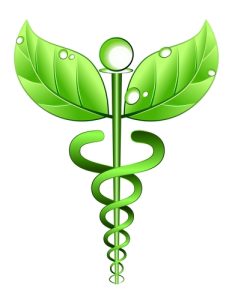

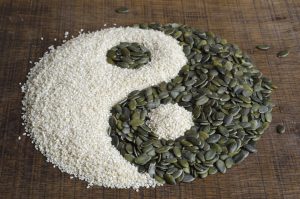

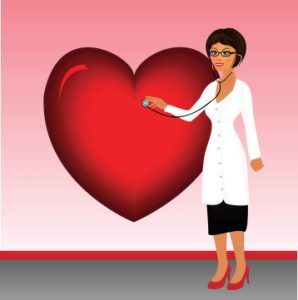



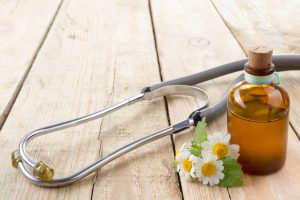


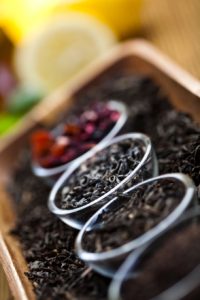

 Written by Peter Rossi, in collaboration with Dr David McConaghy.
Written by Peter Rossi, in collaboration with Dr David McConaghy.